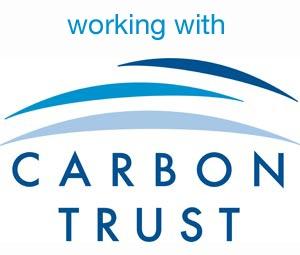In the bustling property market of London, where every detail can influence a sale or rental, Energy Performance Certificates (EPCs) have become increasingly significant. Whether you’re a homeowner, landlord, or property developer, understanding the role of EPCs in London’s property market is essential for staying competitive, compliant, and attractive to buyers and tenants alike. This blog explores the importance of Energy Performance Certificates, how they impact the market, and why they should be a key consideration in any property transaction.
What Is an Energy Performance Certificate (EPC)?
An Energy Performance Certificate (EPC) is a document that assesses the energy efficiency of a property and provides it with a rating from A (most efficient) to G (least efficient). The EPC also includes recommendations for improving the property’s energy efficiency, which can lead to lower energy bills and a reduced carbon footprint.
In the UK, EPCs are legally required whenever a property is built, sold, or rented. They are valid for ten years and must be presented to potential buyers or tenants at the earliest opportunity. For London’s property market, where energy efficiency is increasingly prioritised, EPCs play a critical role in the decision-making process of property transactions.
Why Are EPCs Important in London’s Property Market?
1. Legal Compliance
In London, as across the UK, it is a legal requirement to have a valid EPC for any property that is being sold, rented, or constructed. Failure to provide an EPC can result in significant fines and penalties, which can delay transactions and affect the marketability of the property. For landlords and sellers, ensuring that their property has an up-to-date EPC is not just about avoiding legal issues—it’s a fundamental part of the property sales or letting process.
Additionally, the UK government has introduced the Minimum Energy Efficiency Standards (MEES), which require rented properties to have an EPC rating of E or higher. Properties that fail to meet this standard cannot be legally let, making the EPC a crucial document for landlords in London’s rental market.
2. Impact on Property Value and Marketability
Energy efficiency is increasingly a priority for buyers and tenants, especially in a city like London, where utility costs are high, and environmental concerns are prominent. A higher EPC rating can make a property more attractive, leading to quicker sales or rentals and potentially higher prices or rents. Properties with an EPC rating of C or above are often perceived as more desirable, as they promise lower energy bills and a smaller environmental footprint.
Conversely, properties with poor EPC ratings (D or below) may struggle in the market, as they are associated with higher running costs and may require significant upgrades to meet future energy efficiency standards. In a competitive market like London, a strong EPC rating can be a significant selling point.
3. Energy Cost Savings
One of the key benefits of an EPC is that it provides recommendations for improving a property’s energy efficiency. By following these recommendations, homeowners and landlords can reduce the energy consumption of their properties, leading to lower energy bills. In London, where energy costs can be substantial, these savings can be a strong incentive for both buyers and renters.
For landlords, making energy efficiency improvements based on EPC recommendations can also reduce maintenance costs and improve tenant satisfaction, leading to longer tenancies and lower vacancy rates.
4. Environmental Responsibility
London is a city with ambitious environmental goals, including becoming a zero-carbon city by 2050. Improving the energy efficiency of buildings is a key part of this strategy, and EPCs are central to this effort. By adhering to the recommendations provided in an EPC, property owners can reduce their carbon footprint and contribute to the city’s sustainability targets.
This is increasingly important as both buyers and tenants in London are becoming more environmentally conscious. Properties that are energy-efficient not only help reduce greenhouse gas emissions but also enhance the sustainability credentials of their owners, which can be a powerful marketing tool.
5. Future-Proofing Properties
As the UK government continues to tighten regulations on energy efficiency, properties with poor EPC ratings may face additional challenges in the future. For example, the MEES regulations may be tightened further, requiring all rented properties to achieve a rating of C or above. By improving a property’s EPC rating now, homeowners and landlords can future-proof their investments, ensuring that they remain compliant with evolving regulations and attractive in the market.
Futureproofing through energy efficiency improvements also protects against potential increases in energy prices, providing long-term financial stability for property owners.
6. Supporting London’s Green Economy
The focus on energy efficiency and sustainability in London is part of a broader trend towards a green economy. EPCs play a vital role in this transition by driving demand for energy-efficient products and services, from insulation and double glazing to renewable energy systems like solar panels. This not only benefits individual property owners but also supports local businesses and contributes to economic growth in the city.
By prioritising energy efficiency in property transactions, London is helping to create a more sustainable and resilient urban environment, which benefits everyone.
How to Improve Your EPC Rating
Improving your property’s EPC rating can significantly enhance its value and marketability. Here are some common strategies:
- Upgrade Insulation: Improving insulation in walls, roofs, and floors can reduce heat loss and improve energy efficiency.
- Install Energy-Efficient Windows: Double or triple glazing can significantly reduce heat loss and improve a property’s EPC rating.
- Upgrade Heating Systems: Replacing old boilers with energy-efficient models or installing renewable heating systems like heat pumps can make a big difference.
- Use Energy-Efficient Lighting: Replacing old light bulbs with energy-efficient LED bulbs is a simple but effective way to improve your EPC rating.
- Install Renewable Energy Sources: Solar panels or wind turbines can generate clean energy for your property, boosting its EPC rating and reducing energy bills.
Conclusion
Energy Performance Certificates are a crucial component of London’s property market, influencing everything from legal compliance and property value to energy costs and environmental impact. For homeowners, landlords, and developers in London, understanding the importance of EPCs and actively working to improve energy efficiency can provide a significant competitive advantage.
Whether you’re buying, selling, renting, or developing property in London, ensuring a strong EPC rating is essential for maximising value, enhancing marketability, and contributing to the city’s sustainability goals. With energy efficiency set to become even more critical in the future, now is the time to prioritise your property’s EPC rating and take advantage of the many benefits it offers.
If you’re unsure about your property’s EPC status or how to improve it, consider consulting with a qualified energy assessor who can guide you through the process and help you achieve the best possible rating for your property.












